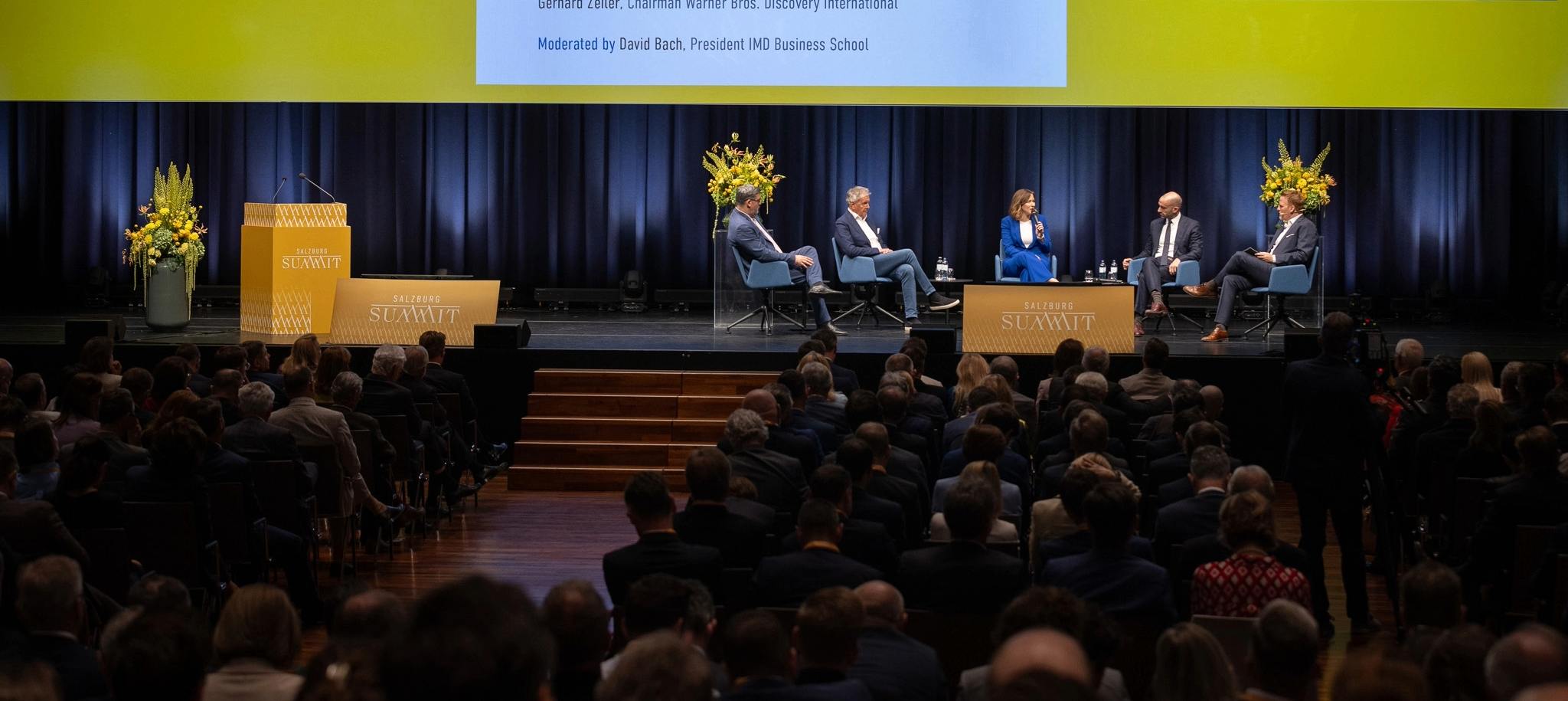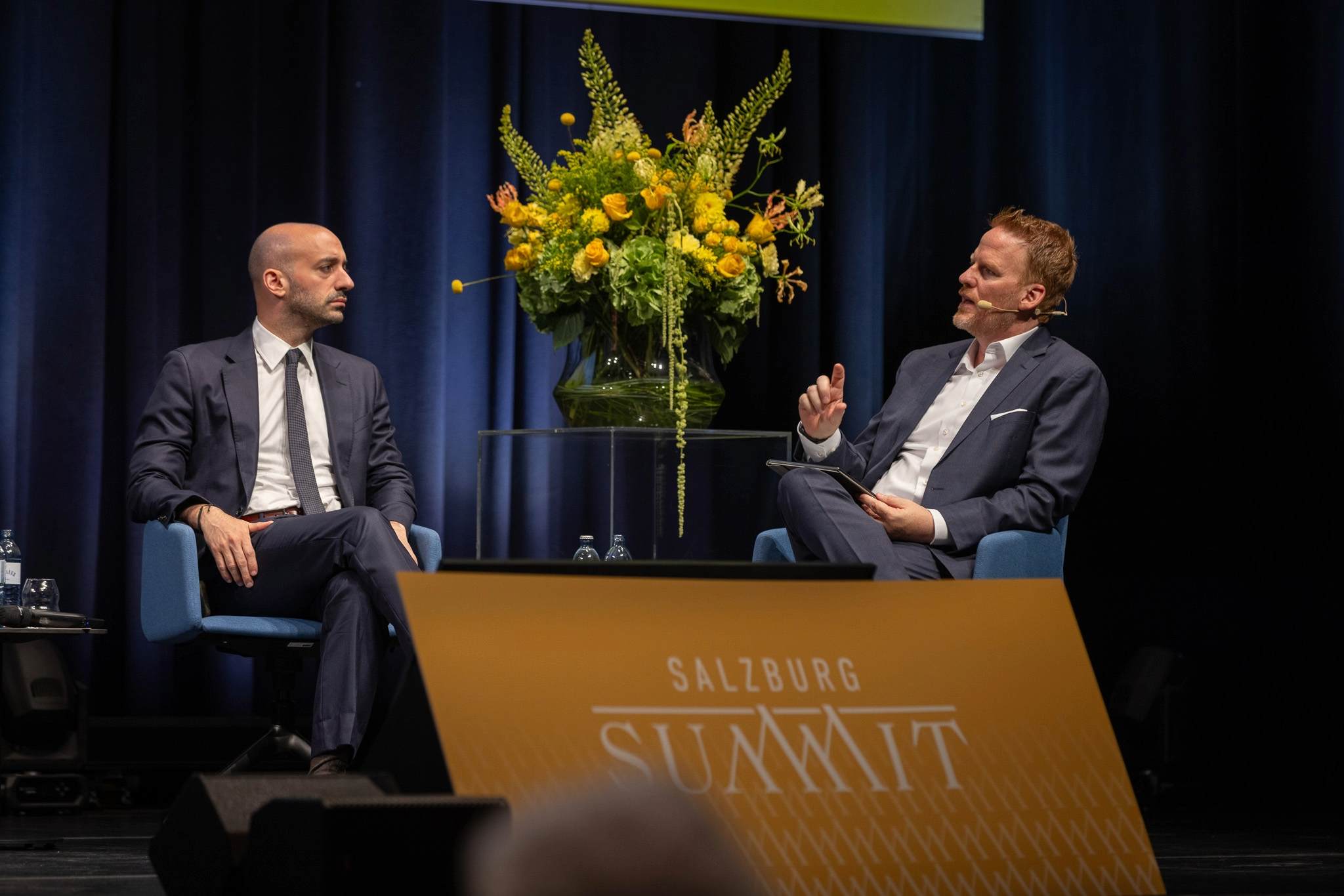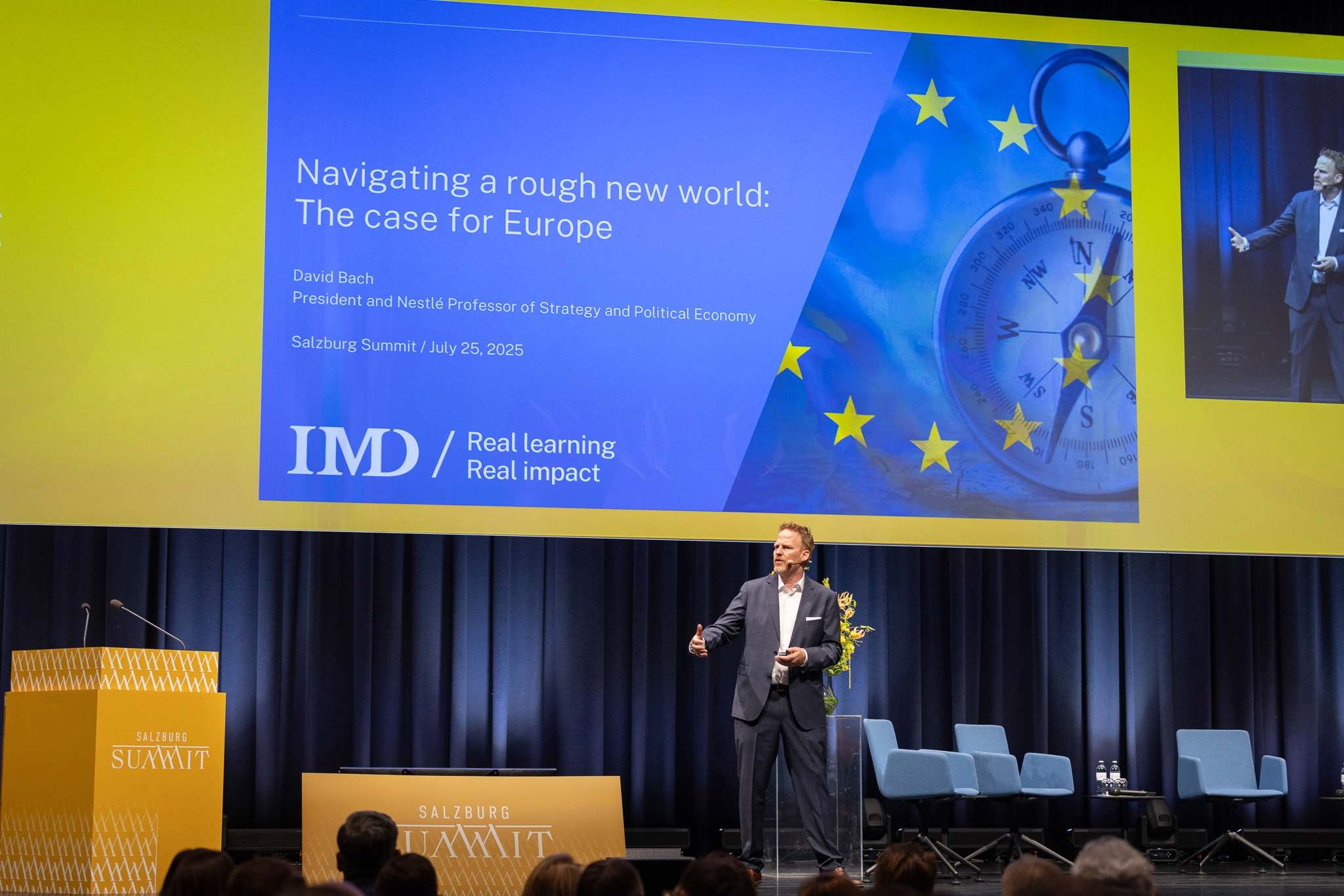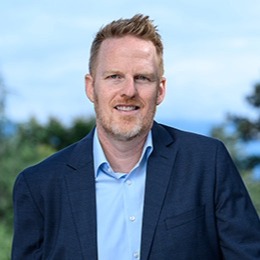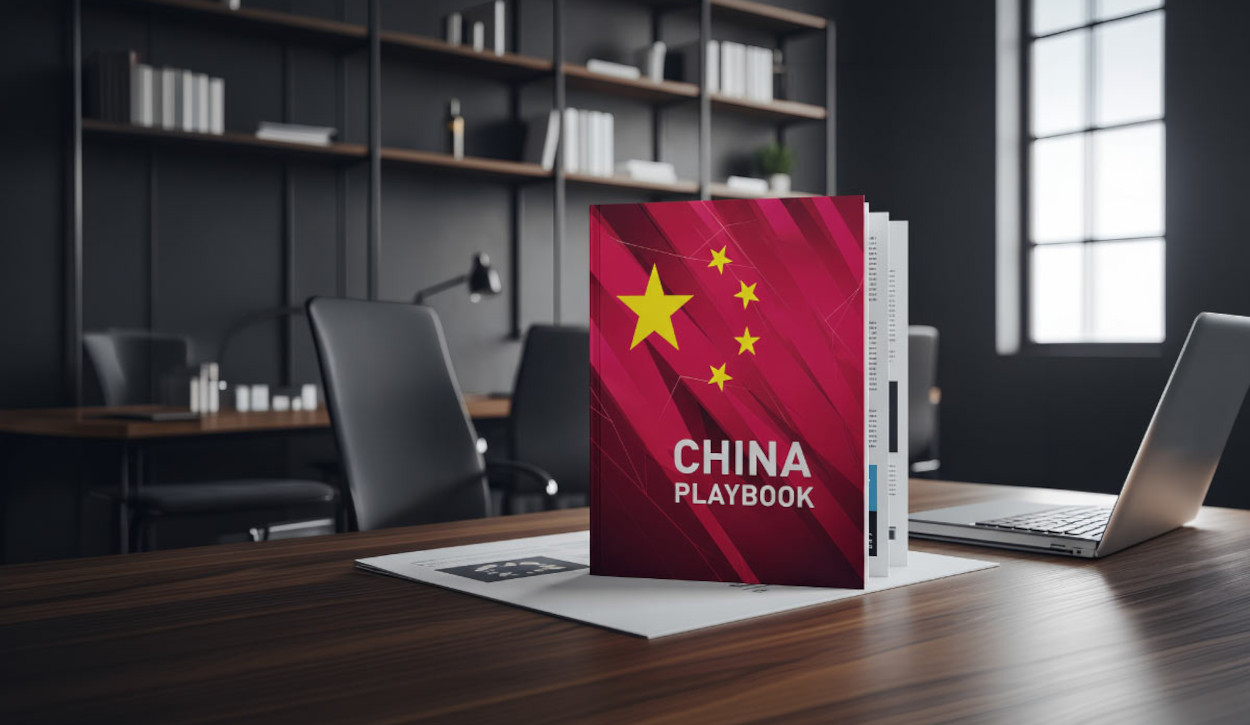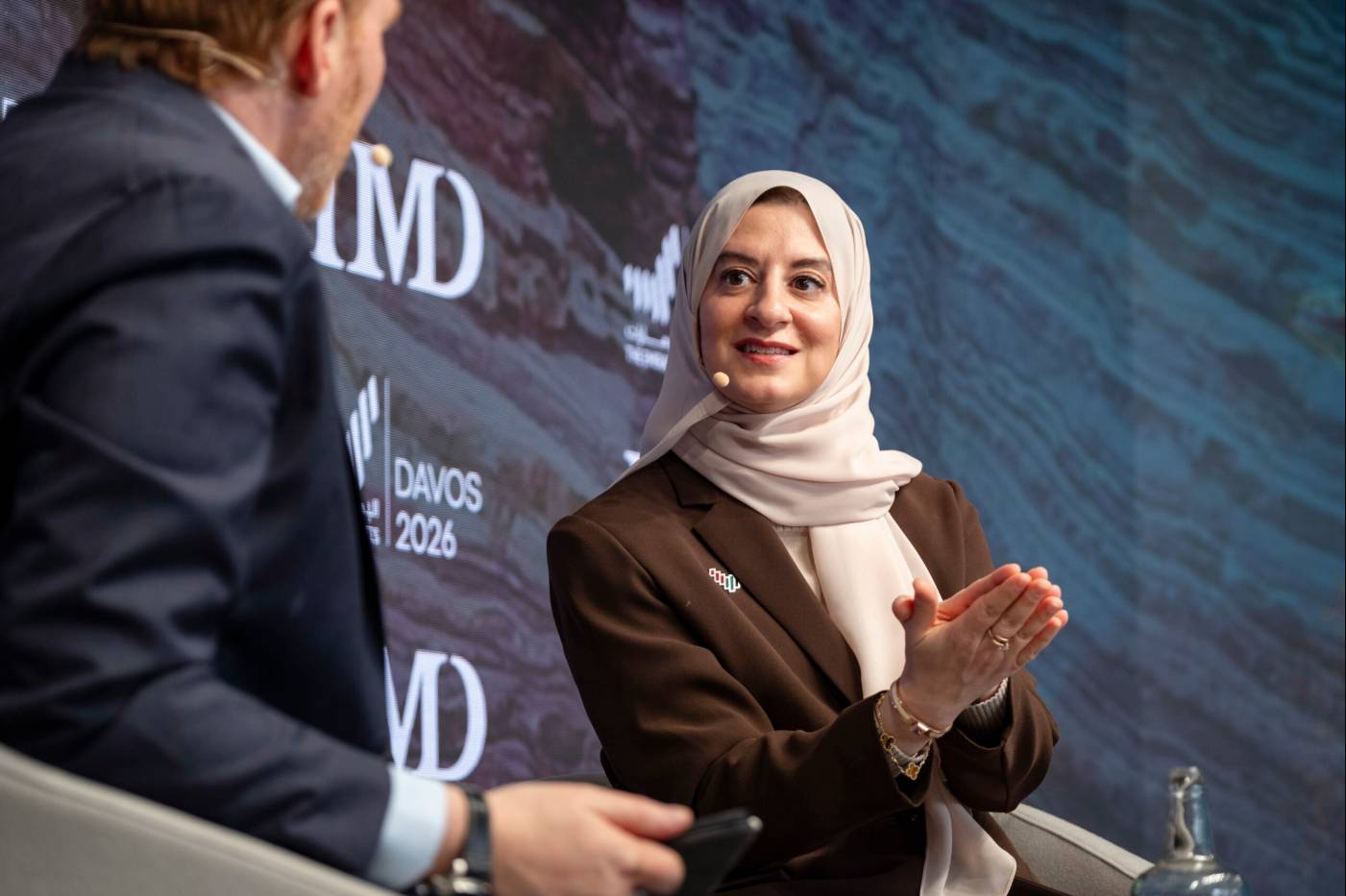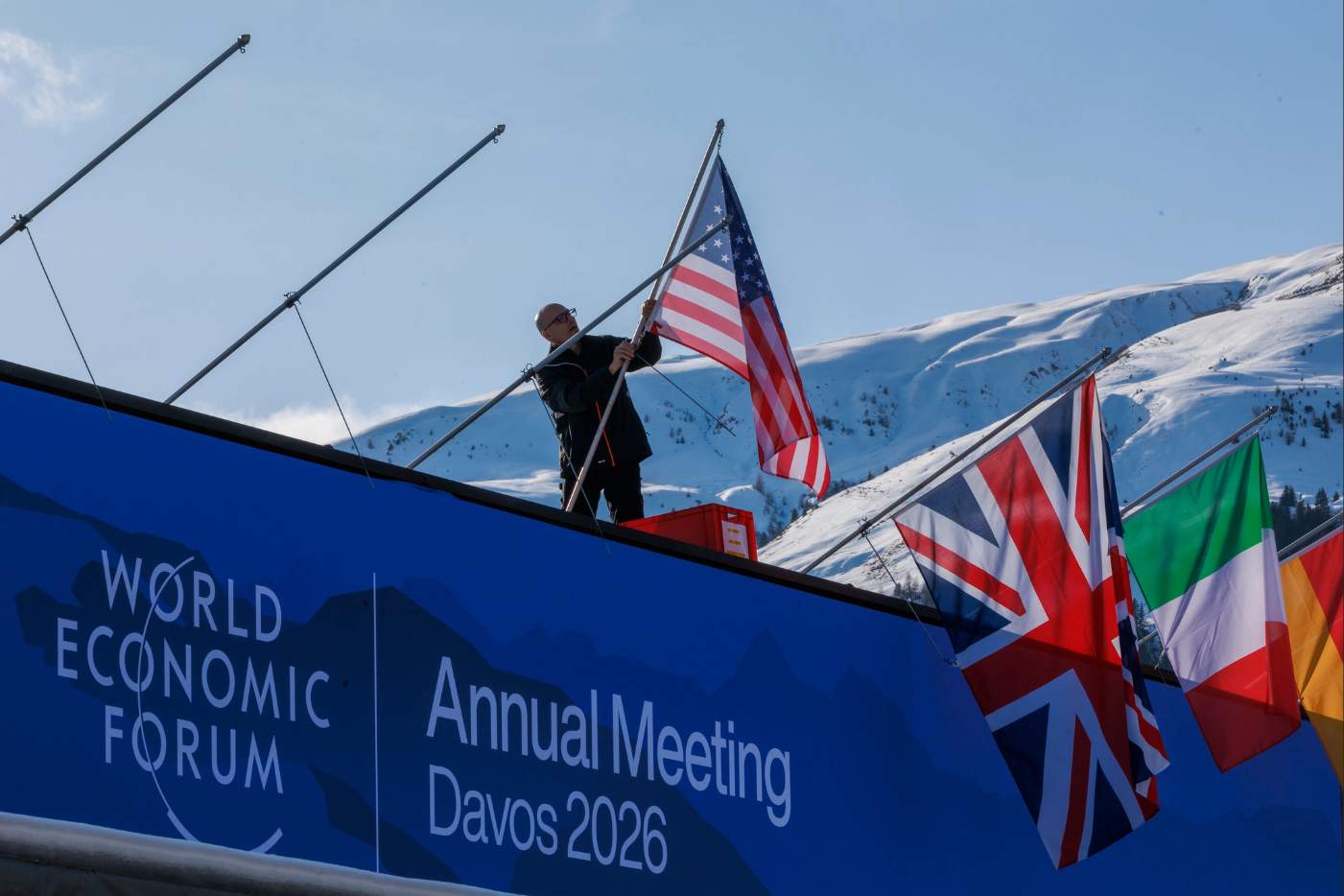Competitiveness begins at home
Plakolm redirected the conversation inward. Strategic autonomy, she said, starts not with geopolitics but with economic competitiveness. Europe’s SMEs, she noted, are hampered by excessive regulation, fragmented financial markets, and cost unpredictability.
“We need to think of Europe not just as the source of regulation, but again as a place of production and innovation,” she said.
She also highlighted the tendency for national regulators to gold-plate EU rules – a particularly acute issue in Austria. “Gold-plating is a crucial problem when it comes to reporting obligations and things like that,” she warned. Her solution: boldly engage in deregulation, even at the European level. “We need to be strong and courageous enough to say goodbye to some regulations forever.”
Plakolm also pointed to the next generation as a force for reform. “Young people care deeply about fairness, peace, and sustainability,” she said. “They are already European in their thinking, and they expect institutions to reflect that.”
As we discussed, Europe doesn’t lack capital; households here save three times more than their US counterparts, but much of it does not find its way to European startups, scale-ups, or investment priorities. Without the establishment of the capital markets union and regulatory harmonization, that capital will continue to flow outward, weakening Europe’s financial firepower in a multipolar world.
Here too, business has a role: to speak up, engage policymakers, and help push for regulation that enables innovation rather than constraining it.

